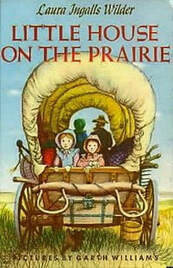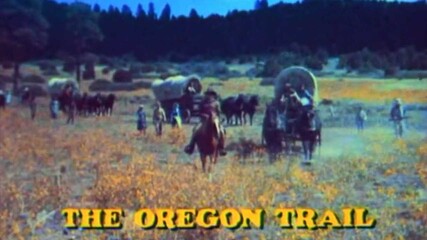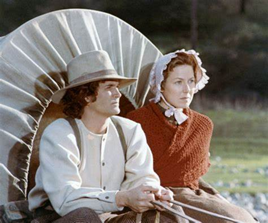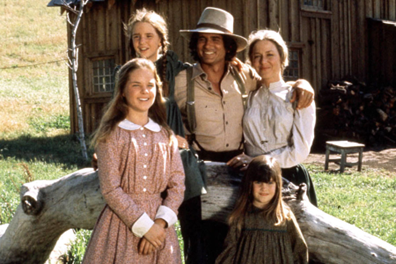One tendency of human nature is to compartmentalize. To forget that while the westward expansion was an exciting time of opportunity for some, it was a time of tragic loss and hardship for others. The overtaking of the continent by European-Americans was only possible because of the defeat of the Native Americans. From our country’s earliest inhabitation by white men, the tribes which had first resided on the land were pushed out. This was to become the legacy of the United States of America. All the native peoples were herded from their homes and confined to designated areas, whether reservations or Indian Territory.
As much as I enjoyed Little House on the Prairie, I was also raised with the oral tradition that my maternal grandfather was half-Cherokee. I find the wagon trains exciting: I still wish I could experience the adventure of traveling across the country to conquer the frontier. And yet, I lament that it came at the cost of the people who were here first, who (for the most part) were willing to live peaceably with their invaders.
It was my goal in writing this novel to convey both sides of the story. To weave them together in a way that would break down the compartments in the mind and reveal the truth of history. Few events are simple or clearcut once we give them proper study.
For my characters Risdon and Lucy Bloodsworth, the offer of free land in Texas is an opportunity to develop a larger farm and legacy than they ever could otherwise on the Eastern Shore of Maryland. They are young and adventurous, full of hope and curiosity. They are eager to take control of their lives and build something new, not just for themselves, but for their country.
I can’t blame them. In their place, I might be tempted to do the exact same thing! I never once thought that Pa and Ma Ingalls were threatening or villainous in any way. They were just ordinary folks who were trying to live their lives and provide for their families the best they could. They had no prejudice against Indians. I don’t think it really occurred to them that they were moving into lands previously lived on by Indians, and if it did, they just took it as the way of the times. We are all a product of our time and culture.
For them, this was just the way things worked at that time and place. The Indians were being moved west; the land was available to them.
It wasn’t until I was a teenager that I became sensitive to the plight of the Indians and the injustice of their removal from ancestral lands. When I learned that I had a family connection with Native Americans, my sympathy for their situation was deepened. But I still love Laura Ingalls and have a desire to explore new frontiers.
As in any other historical era, it is the government which makes decisions and the citizens who live with the consequences. There was a prevailing idea among the lawmakers of that day that God had given this land to white Americans.
This concept almost became its own religion. The phrase “Manifest Destiny” was first coined on December 27, 1845 by John O’Sullivan, editor of the New York Morning News. Although he was addressing the boundary dispute with Britain over the state of Oregon, the phrase encapsulates a decades old ideology.
His argument was that it was “the right of our manifest destiny to overspread and to possess the whole of the continent which Providence has given us for the development of the great experiment of liberty and federated self-government entrusted to us.”
Not everyone agreed. A year later, on January 3, 1846, Representative Robert Winthrop ridiculed the concept in Congress, saying, "I suppose the right of a manifest destiny to spread will not be admitted to exist in any nation except the universal Yankee nation."
Although he was the first critic of the concept, he was not the last. The argument for “Divine Providence” as justification for actions motivated by bigotry and greed was met with disdain and embarrassment by those who had a more humble and compassionate perspective. Nevertheless, expansionists embraced the phrase and touted the success of their efforts as God’s blessing.
In 1996, historian William E. Weeks noted that three key themes were usually expressed by advocates of Manifest Destiny:
1.) the virtue of the American people and their institutions;
2.) the mission to spread these institutions, thereby redeeming and remaking the world in the image of the United States;
3.) the destiny under God to do this work.
Long before the term “Manifest Destiny” existed, the principal was alive and motiving such men as President Andrew Jackson when he signed the Indian Removal Act.
Now please understand, I am an American patriot, and I would rather live in the United States than any other place in the world. But I am not naïve to the sins of our forefathers. The Trail of Tears was a travesty of justice and a preventable crime.
I also love the Ingalls Family. Life is messy.





 RSS Feed
RSS Feed